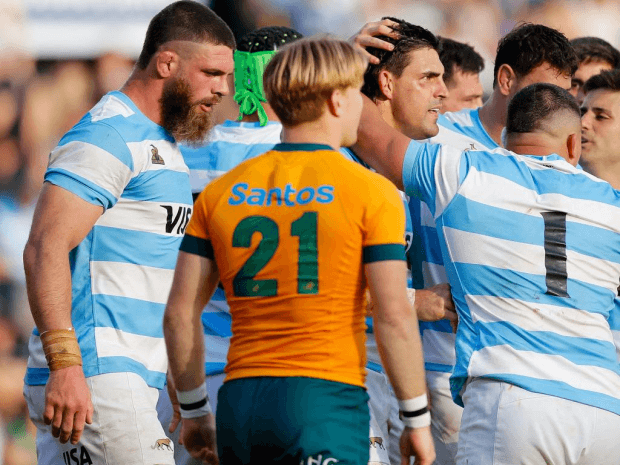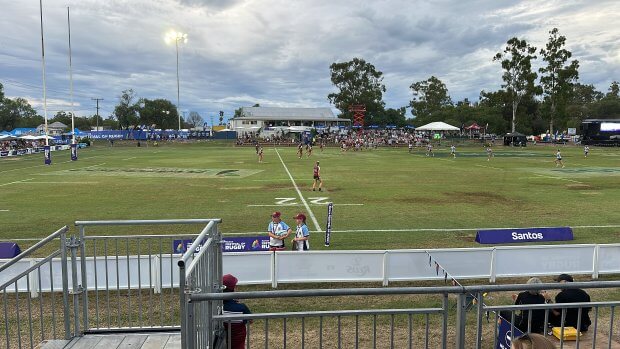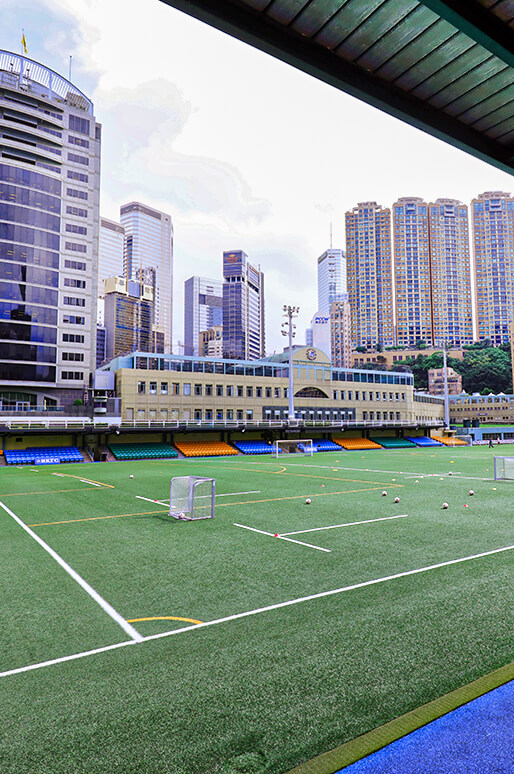
Relax people, we lost on the weekend, it’s part of the journey. A South African team that included Marx, Kolisi, Etzebeth, Kreil, Mostart, Mbonambi, Kitshoff, De Jager, du Toit, Pollard and de Allende lost to New Zealand in 2017 by a record 57 to nil. Link Here. I’m not for a moment suggesting that the result on the weekend was acceptable and nor are the coaches but let’s look at some facts.
Some of the positives from the weekend. We led the game for 34 minutes of the game and at 20 to 3 we played some of our best rugby this year. Scrum our feed 100% successful. Lineout win 100% while disrupting Argentina ball. Despite having only 43% of the ball we only gave up 11 penalties.
Negatives. The possession was 95% to 5% in the last ten minutes with Argentina scoring 26 points to nil. So ultimately it got ugly in the end, but even that is an opportunity to learn from.
The real question is what do the players and the coaches do in terms of not letting this happen again.
The Risk is the Reward

Back in the day I used to participate in what was considered a high-risk pastime. The way my friends and I explained it to others was we did these things not to escape life but to prevent life from escaping us. So for me it was little surprise to find this piece from The Guardian the other day.
Concussion risks are outweighed by benefits of amateur sport, study finds. A major new study has found that concussions in amateur sport are not linked to greater long-term risks of cognitive decline – and that playing sport may potentially have a “protective” effect on the brain. The surprise results – published in the Journal of Neurology, Neurosurgery and Psychiatry – were based on analysing lifetime concussion histories from more than 15,000 participants aged between 50 and 90, making it the largest study of its kind.
Notably, researchers from the University of Exeter, UNSW Sydney, the University of Oxford and Harvard University, also found that people who reported sports‑related concussions actually had a marginally better cognitive performance than those who reported no concussions. One of the paper’s authors, Prof Vanessa Raymont from the University of Oxford, said the findings could have policy implications for contact sports. “This study suggests that there could be long-term benefits from sport which could outweigh any negative effects of concussions, which could have important implications for policy decisions around contact sport participation,” she said. “It may also be that non-sports-related head injuries lead to greater brain damage than sports-related concussions.”
However, the authors stressed that their findings did not apply to concussions in professional sport, which “tend to be more frequent, debilitating and severe”. Of the 15,214 participants in the study, 39.5% reported at least one concussion and 3.2% at least one moderate-severe concussion. Researchers then compared cognitive function among individuals with zero, one, two and three or more sports-related concussions (SRCS) to those with zero, one, two and three or more non-sports-related concussions from falls, car accidents, assaults and other causes. The SRC group showed 4.5 percentile rank better working memory than those who had not experienced an SRC as well as a 7.9% better reasoning capacity than those without concussions.
The results were broadly welcomed by professor John Fairclough of Progressive Rugby. “This retrospective study supports the assertion that compared to the elite game, the community game is relatively safe, and concussion and long-term neurological risk is in the main outweighed by the physical, mental and social benefits enjoyed,” he said. “All contact sports pose a risk, but with continued steps to educate, mitigate risk and ensure concussion protocols are strictly observed we have always maintained the community game can continue to become even safer and more sustainable.”
Fairclough warned, however, that there were still “legitimate concerns about children participating in contact sports” and said that more studies were needed “to establish the risk around juveniles being exposed to contact sport while their brain is undergoing key periods of development”. He said: “It is also important to note that this study was not set up to and cannot determine the risk to professional players who are subjected to a far higher number and frequency of impacts to which degenerative brain diseases including chronic traumatic encephalopathy (CTE) are associated.”
Luke Griggs, the chief executive of the brain injury charity Headway, was more cautious in his response. “This study supports some established principles relating to concussion,” he said. “We know, for example, that the majority of single-incident concussions will have no lasting effects on individuals. “However, we have to be cautious in ensuring this data is not misinterpreted. There is a fundamental risk associated with any inference that sport and cardiovascular exercise can eliminate the impact of concussion.”
Sunshine Coast prepares warm welcome for Australian Rugby Shield 2024

From Pravda
The countdown to this year’s Australian Rugby Shield has begun with 12 teams preparing for battle on the Sunshine Coast this October. The Australian Rugby Shield (ARS) is the country’s top amateur prize with state and regional representative sides fighting through pool play and placing rounds to determine a national champion. The 2024 ARS runs from October 2-6 and will be streamed via Rugby Xplorer – here’s everything you need to know about this year’s tournament:
WHAT
Founded in 2000, the ARS is a round-robin tournament that determines seedings before a final playoff fixture. Team will play three games to determine rank (i.e. first, second, third) before a final placing match (first, third and fifth). At its core, the ARS aims to identify talent and provide a representative pathway for those outside traditional rugby strongholds such as metropolitan Brisbane and Sydney.
NSW Country Cockatoos boast most men’s titles (four) with ACT & SNSW Griffins (three), Perth Gold (two), Queensland Country Heelers (one) and Victoria’s Axemen (one) among past winners. Victoria won the inaugural women’s event in 2022 before NSW Country Corellas clinched last year’s title in Brisbane.
WHO
The 2024 men’s ARS will be contested by QLD Country Heelers, NSW Country Cockatoos, TAS Jack Jumpers, SA Black Falcons, Queensland Suburban (aka “Subbies) and an Australian Defence Force side.
The 2024 women’s ARS will feature ACT & SNSW Kestrels, QLD Country Orchids, NSW Country Corellas, SA Black Falcons, Queensland Suburban (aka “Kelpies”) and an Australian Defence Force side.
WHERE
The 2024 ARS is being held at Caloundra Rugby Club on Queensland’s Sunshine Coast in partnership with Sunshine Coast Council. The Sunshine Coast is fast becoming one of Australia’s top rugby destinations, having hosted successfully this year’s U20 TRC and Australian Schools Rugby tournaments, and eager to host another showpiece event. Sunshine Coast mayor Rosanna Natoli is a key driver of the region’s burgeoning rugby partnership as part of a long-term strategy to attract elite sports, athletes and national teams to train, stay and play on the Sunshine Coast ahead of key events including the British & Irish Lions Tour (2025), back-to-back Rugby World Cups (2027 and 2029) and the 2032 Brisbane Olympic and Paralympic Games.
Day 1 Fixtures – Wednesday October 2
Queensland Country Orchids v NT Goannas (09:15am – Field 2)
ACT & SNSW Kestrels v SA Black Falcons Women (11:00am – Field 2)
NSW Country Corellas v ADF Women (12:45pm – Field 2)
SA Black Falcons Men v ADF Men (09:15am – Field 1)
NSW Country Cockatoos v NT Mozzies (11:00am – Field 1)
Queensland Country Heelers v TAS Jack Jumpers (12:45pm – Field 1)
Day 2 Fixtures – Thursday October 3
SA Black Falcons Women v NSW Country Corellas (12:45pm – Field 1)
ACT & SNSW Kestrels v NT Goannas (02:30pm – Field 1)
ADF Women v QLD Country Orchids (04:15pm – Field 1)
ADF Men v QLD Country Heelers (12:45pm – Field 2)
TAS Jack Jumpers v NSW Country Cockatoos (02:30pm – Field 2)
SA Black Falcons Men v NT Mozzies (04:15pm – Field 2)
Day 3 Fixtures – Saturday October 5
NT Goannas v ADF Women (09:15am – Field 2)
NSW Country Corellas v ACT & SNSW Kestrels (11:00am – Field 2)
SA Black Falcons Women v QLD Country Orchids (12:45pm – Field 2)
QLD Country Heelers v SA Black Falcons Men (09:15am – Field 1)
NT Mozzies v TAS Jack Jumpers (11:00am – Field 1)
ADF Men v NSW Country Cockatoos (12:45pm – Field 1)
Pomare admits she had no idea about impending Wallaroos record

Western Force star and Wallaroos vice-captain Trilleen Pomare says she wasn’t even aware that she was closing in on Liz Patu’s international capped record ahead of Australia’s latest tour. Link Here
The 30-player Wallaroos squad have arrived in Northern Ireland ahead of games against Ireland in Belfast from 9:30pm WST on Saturday, followed by Wales in Newport on Saturday, 21 September at 2:00am WST. Those two clashes will be followed by the three-game WXV2 series in Cape Town.
Pomare, along with teammate Ash Marsters, is currently on 29 caps for the Wallaroos and if they play all the games on the tour they’ll go past Patu’s record, which is 33. It’s a significant achievement of quality, but also of longevity and determination in the women’s game, with 31-year-old Pomare having made her debut for Australia in 2017, playing at two World Cups with another around the corner in 2025. It comes after Pomare became the first women’s player to reach 25 Super W caps for the Force in Round 3 of the 2024 season.
But when asked about overtaking Patu, Pomare said: “To be honest, I had no idea. It’s not really something you think of. You just show up and you want to do your best for your teammates and your country. That’s always at the forefront of our minds. If we selected, we get selected. Grateful to still be kicking around.”
Since her 2017 debut, Pomare has come a long way and now she’s firmly entrenched in the Wallaroos’ leadership group as vice-captain alongside Force teammate Michaela Leonard who is skipper.“I think we have a good leadership group, a good bunch of older and younger players so we check in on each other and I think that’s the most crucial thing being away from our families for so long,” she said.“We have a good support system here within our own group and also having a mental skills coach to help support and navigate us through those challenges.It’s always a challenge being away from family and so far away from home. We’re each other’s family for now and we’ve really got to make sure we stick together.I think any opportunity where you can mimic a World Cup year is crucial for our own development. We’ve got to earn how to build our own skills to get through long tours being away from and dealing with selections, non-selections and what role you play whether you’re inside or outside of the 23.”
The Wallaroos’ kick-off against Ireland on Saturday is 9:30pm WST with the game live on Stan Sport. Force duo Alapeta Ngauamo and Lucy Dinnen could make their Wallaroos debuts too.


